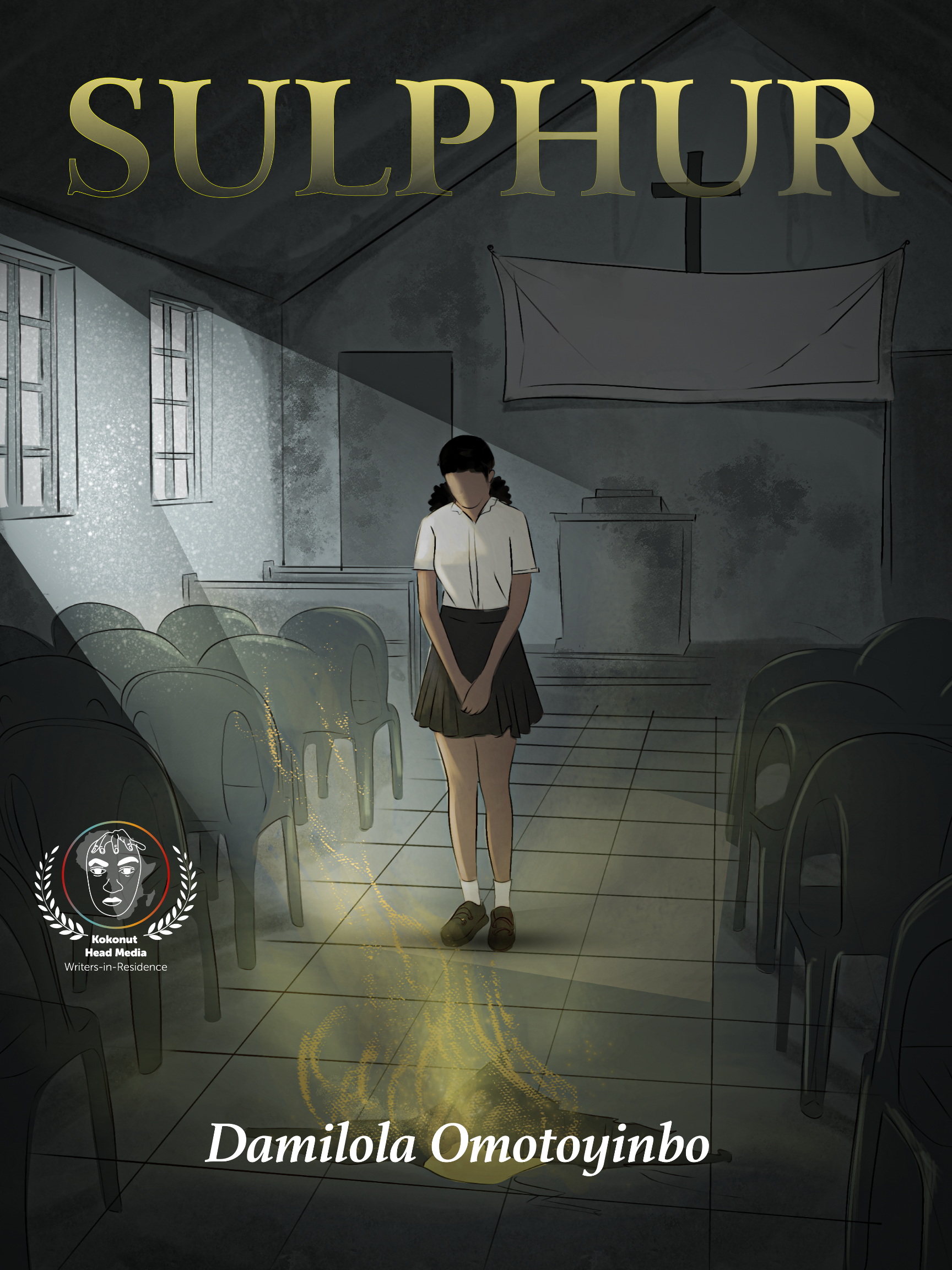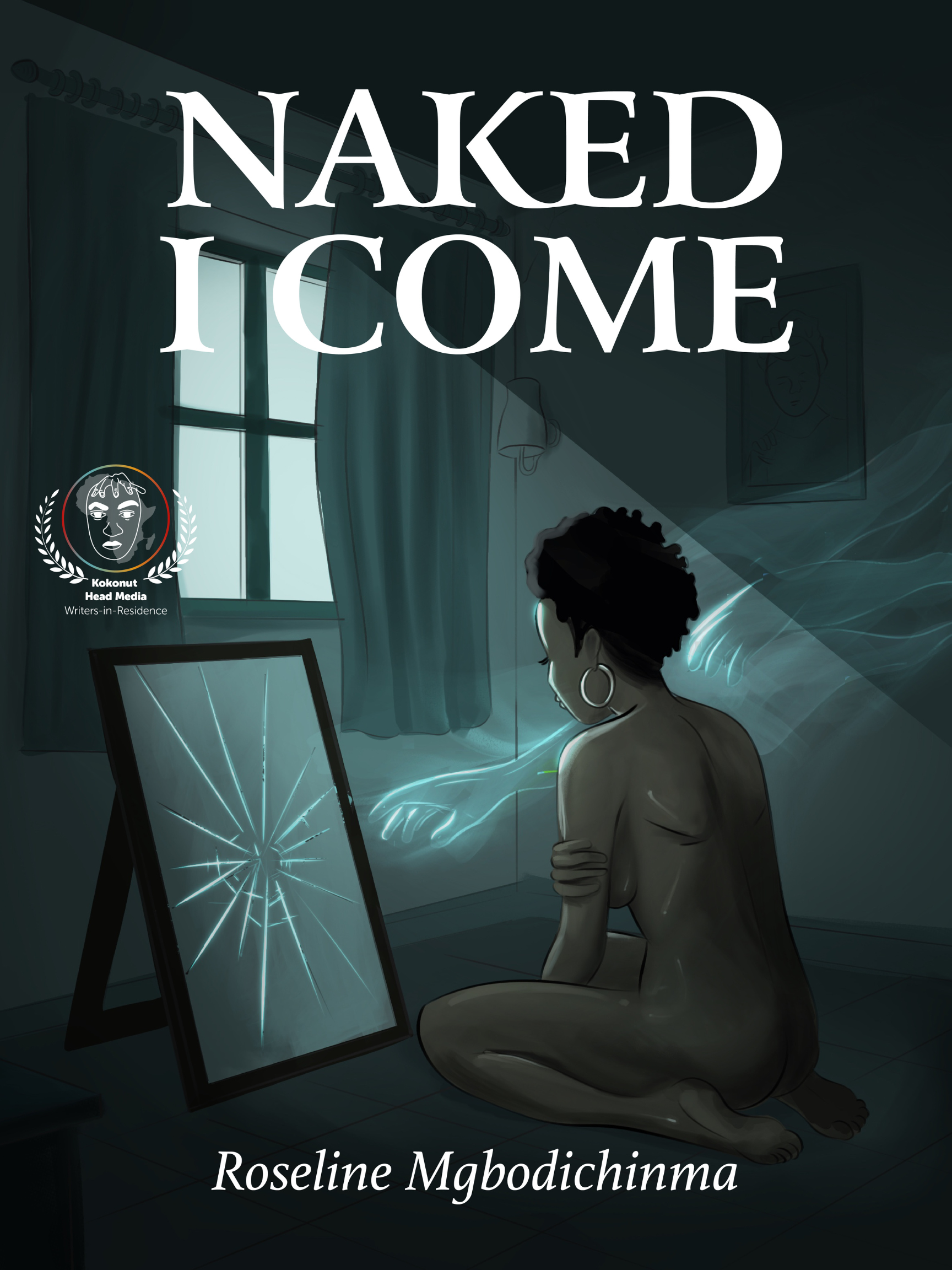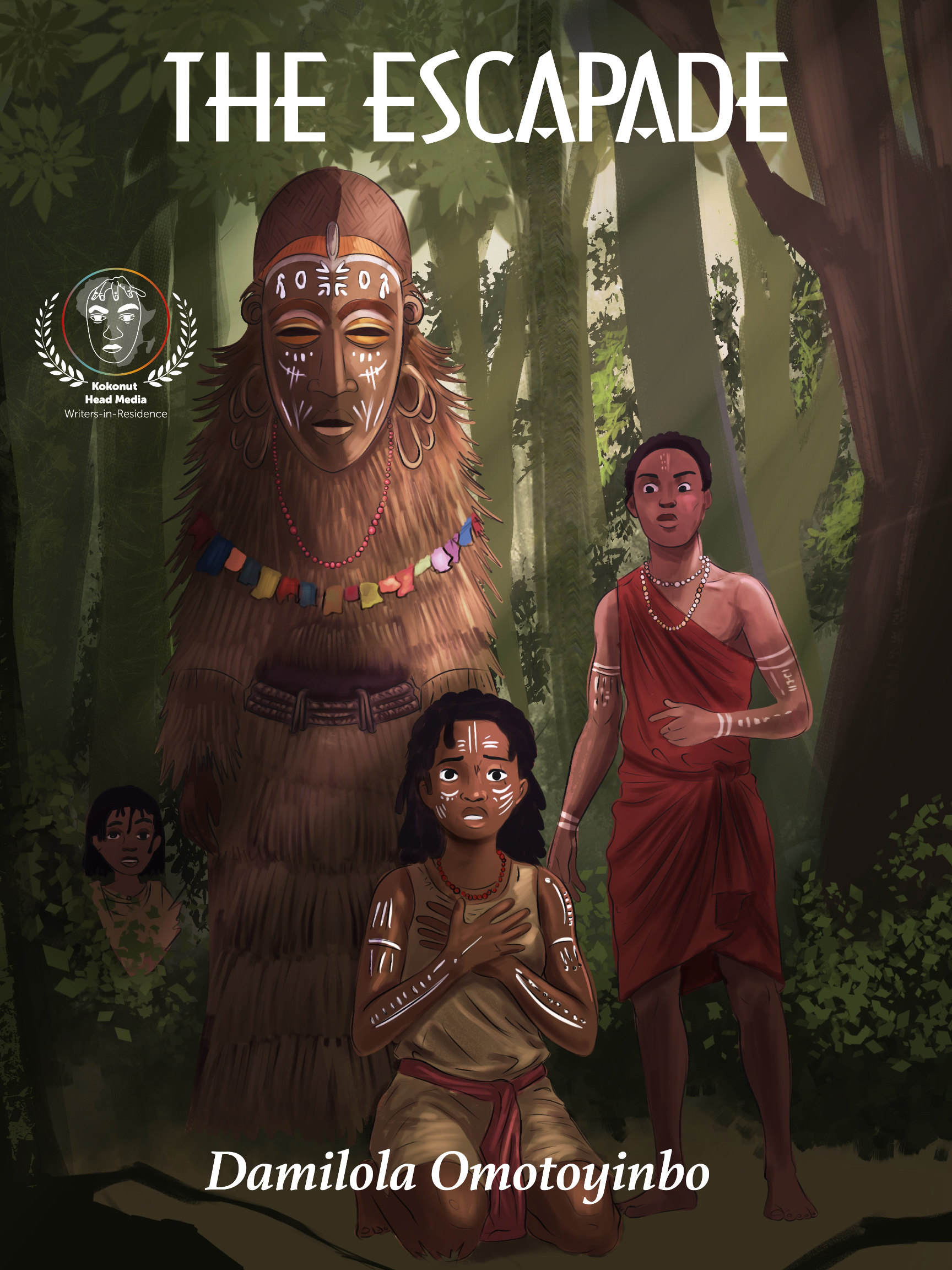Tech Sis
We met at a tech event. That year, I had just begun my career as a Software Engineer and was trying to understand all the tech jargon. She, however, had over two years of experience and was a grounded coder who understood how the system worked better than I did. Her confidence was evident in her manner of walking and the faint nods she gave during lectures.
The event lasted a week and we got free accommodation with three ladies in each room. She was one of the ladies in my room. From the first day, I noticed how she spoke so little—she had the demeanour of someone who came to the event to observe floating in and out of the room as if trying not to leave an imprint. She only went into the room when it was time to sleep after the buzz on the corridors had dwindled.
Throughout our stay, I did not see her walk to the bathroom to take her bath. She was not like other attendees who walked about in panties with their little towels draped on their shoulders. She was weird, maybe different. Whenever I woke up, I noticed the subtle smell of lavender in the air—now it seemed more like a memory than a smell.
The few times I heard her speak, her voice was low-pitched and detached, as if she were talking from a faraway place. This added mystery to the air around her. I was curious, but I could not ask any serious questions.
•••
On the event's last day, I got nostalgic, leaving the place that had housed me for a week. But I shook it off as fast as it came. The venue was getting crowded with people who dragged bags and boxes as they walked to their seats, while I moved with so much ease with my backpack slung over my shoulders. I learnt to travel light because it made trips enjoyable.
That week, I ditched my introversion to make as many tech friends as possible. I laughed with people, waved at strangers, and started conversations by asking for their names and what convinced them to venture into the tech space.
“Better pay,” a lady said with a smile that revealed a golden tooth.
“I lost my banking job,” stated a woman who volunteered to serve drinks on the first day. “You know how unstable that career can be.”
“I started tech because they said there is money in tech. Aaahhh,” Ralia chimed, touching her pink nose ring playfully. “Tech is trendy, you know.”
Everyone had unique reasons and interesting stories, but Alima was the only one who shared my reason.
“I love to be challenged,” she said, as a furrow formed on her forehead. “Tech feeds my curiosity.”
I observed as she adjusted her scarf and traced the edge of her notepad with her fingers while she spoke. I loved the tenderness and coarseness of her voice. Halfway through the meet-and-greet, I watched how she buried her head into her phone, seeming to shrink from the world and herself.
In the evening, there was excitement, the kind you experience after a long week of panel discussions and sharing tech ideas. A little group of people stood near the banner, gisting and taking pictures, their laughter rising above the softly playing music. Some people had left earlier, and those still around were doing their best to capture every moment.
I joined the group picture after taking a few with the friends I had made. Then, new people tried to join in —the girl who used to be a banker, the girl with the broken tooth, and Alima joined too. That day, she wore light makeup, but I did not see her wear any makeup throughout the event. Her face was bare even on the day she led a group presentation. There was something guarded about her movements. I caught her before she could sneak off.
“Hi, are you going to another event?” I probed.
She glanced at me with eyes full of unspoken surprise. “Errm.” She ran her palms through her scarf. “Yeah. It was organised by one of my friends. Do you want to come?”
Something was unnerving about her. I couldn’t put it into words, but I was curious. Her demeanour had a tint of retreat, like someone leaving a place to pull off a layer of themselves. Or maybe that was how she kept fleeing from everything—always on the move, keeping her true identity from people.
She had already ordered a ride, and when we entered the car, Lojay’s Monalisa was blaring on the car tape. She twisted her fingers and told the driver to change the music or turn it off. I did not ask why because she mumbled something about the song, making her uneasy. Our conversation went slowly, a bit boring at first. I saw it pick up when I mentioned my struggle with CSS.
She had encountered her fair share of pain. Her first internship was a mess, and she resigned after four months. She would have resigned after two months, but she didn't want to be a coward. A problematic team lead and too much workload almost caused her to lose her mind.
“I began to doubt myself.” She smiled shyly and continued. “I even had PTSD and could not apply for jobs for a while.”
I nodded and stared into her eyes. The shy smile was not just a smile—it was a statement. I saw her avert her gaze before adjusting her scarf nervously. Then she said, “But I am a Mid-level Engineer now. Everything happened within two years. I am grateful.”
“Are you serious? Your journey was so fast.”
“I know right.” She smacked her lips as she laughed and revealed two front teeth with lipstick stains. “That’s how fast you go when you’re in the right environment.”
“I’m curious about your present job. How is it going? Do you like it there?” I asked.
“Yeah, I do. Well, let’s forget about me. Tell me about yourself.”
“I think my curiosity is sustaining me in this tech thing,” I laughed loudly. “They say there is money in tech but nobody talks about the stress, the sleepless nights, and the many times you question if you made the right decision…”
“Hmmm. Tech money is blood money. I mean your blood and sweat.”
“I am telling you,” I said laughing, but I could not do so much to hide my exhaustion.
Slowly, our conversation moved from tech to more personal stuff, like a shift to a different route. Her phone beeped. She checked the screen, and then her lips tightened as she ignored the call. A few minutes later, she read a message notification on her screen halfway before dismissing it. Her face turned sour.
“Is everything alright with you?” I asked, my tone a little chipped. I didn’t know if I was probing too much.
Her eyes still glued to her phone, she responded, “Yeah, just… personal stuff,” as if forcing herself to believe the statement.
The Uber driver, a man in his early thirties with a full black beard, squinted his eyes behind his thick-rimmed glasses. He kept looking at us through the rearview mirror, following our conversation. Alima began to scroll through Twitter, her thumb flicking through pages at intervals. She would smile or hiss but suddenly gasped, “Oh, my God. Look at them.” She turned her phone screen to me. “Are they not so cute?”
On the screen, two popular lesbian couples were snuggled up on the bed. Their arms interlocked, and a blissful smile spread across their faces. I had seen them before, and their pictures had gone viral on Twitter several times.
“Have you ever had a queer friend?” she asked.
“Umh. No. I mean yes,” I stuttered. “I went to an all-girls school. A lot of things went down there.”
She nodded, her lips curved into a smile. “I know right.”
There was something heavy hanging between us, as if we had just shared a secret without having to utter a word.
•••
We reached our destination, a white house tucked behind shrubs. Four guys wearing shorts sat in a circle, and a lady walked out of the house to meet us. She saw us before we did. She sized me up and eyed Alima, who nodded faintly and shrugged, before walking past her questioning eyes to meet the guys. A barking, lone dog sat by the house gate, which looked like it had known more empty days than anyone could imagine.
The guys were in the middle of an argument, but I could not pick up what they were arguing about. The argument was playful, but they were loud, and their words bounced off the whitewashed walls of the yard. Soon, they began to talk about relationships—who was with whom, who took another man’s babe to a nightclub in Lagos, and a fine girl who just moved to the estate. It was obvious that they were close and everyone knew each other's secret. No cover-ups. I craved it.
I stood close to the fence and watched Alima blend in seamlessly. She had already found her tribe. I did not understand many of their inside jokes but I smiled. I watched her nod to their jokes as I stood far off, unsure what to contribute. A part of me longed to belong but I felt a restriction in my spirit. Maybe it was fear. They might see me as a stranger.
Alima turned to look at me, where she stood, her back rested on the railings. We locked eyes, and there was a knowing look on her face. Maybe she noticed it in the car, or she had known since the first day we chatted at the tech event by Codemy. I felt a wave of unease sweep through me. I felt transparent.
One of the guys grinned at me.
“Hey,” he said, interrupting my thoughts. “How did you guys meet? Another tech bestie?”
I smiled nervously, trying so hard to look poised. “Yeah,” I replied, “tech things.”
Alima cocked her head slightly but did not say a word. She knew I was hiding something, she would not ask me what because we both knew what it was. The silence between us was so loud they pounded in my ears.
These guys looked nothing like I've ever experienced—the strange mix of openness, friendship and support. They were not mere friends. They were connected by secrets—some known and others waiting to be revealed. I could feel their happiness seep through the stillness of the evening.
One of the guys who was a pianist in his church spoke about how he was trying to cope with the pastor who had not paid him for two months. “I believe I am doing it for God.” He tried to hold back his tears, “but I am so tired. Even when the pay comes, it is so little.” Then, he broke down.
A guy wearing a black sweatshirt sat beside him, rubbed his shoulders, and kissed his forehead. “Trust me, we are here for you.”
Everyone joined in consoling him, even Alima, who was a Muslim. They told him to keep working for the church until he got better pay at another church.
Even though I stood outside their conversation, I could not hold back my admiration. I wanted to be part of this thing where everyone was accepted. No judgement. The lady who met us at the gate tapped Alima on her shoulder playfully. “You know how we roll.” She turned to face me. “We’ve all spilled our secrets here. I am sure your friend has some she would love to tell us.”
I felt my heart thump against my ribcage, but I grinned widely, acting like I did not feel out of place. “No, there is nothing to reveal,” I said, hoping they did not see past the facade.
Alima looked at me, her gaze soft but piercing. She knew I was not telling the truth. But instead of selling me out, she only nodded in support, I did not tell her even after that evening, and she would never know how much I appreciated the act.
As the evening continued, we drank red wine and ate shawarma. Their conversation drifted to more intimate topics—identity, queerness, and love. Although I did not contribute, they spoke in a way that was liberating but I could feel this tightness in my chest, my whole being holding me back from evolving.
Alima and I had a silent ride home using the Uber she had booked. She sat scrolling through her phone but her presence meant everything to me. Tell me about meeting someone in a day and feeling like you had known them all your life because even in their silence, they spoke your language.
But I knew I would not tell her—maybe not now, not yet—although a part of me believed she knew everything I was not saying.
As I looked out through the car window at the bustling nightlife of Lagos, I realised I was not alone. I had felt alone for a long time—holding back, weighing my words, and rereading every tweet to make sure it did not carry any tint of this thing. Now in my silence, I knew I was not alone. Alima with her stoic attitude also carried this weight.
A sense of belonging—maybe that was all I needed for now.











